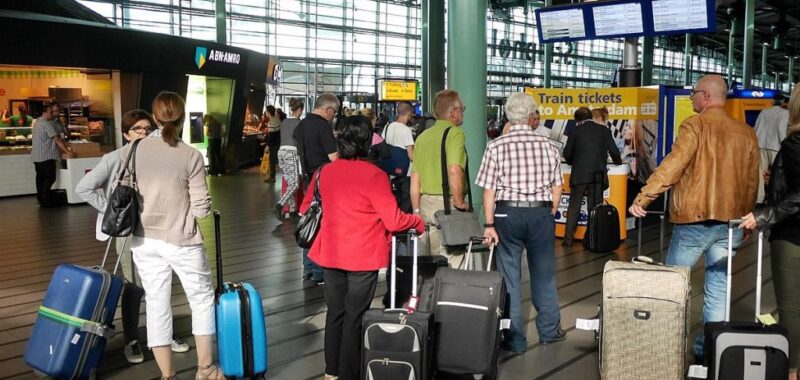The European Parliamentâs transportation committee voted this week for an amendment that would prohibit airlines from charging fees for bags that weigh up to 7 kilograms, or around 15 pounds.Â
Under the rule, passengers will be able to fly with carry-ons and personal items free of charge.
âToday’s vote marks an important step toward fairer and more transparent travel,â said Matteo Ricci, the lead member of European Parliament on the legislation.Â
The measure is part of a broader effort from the European Parliament to ensure passenger rights for reimbursements following flight cancellations or disruptions and making it easier for passengers to receive compensation.
Airlines Voice Opposition
Airline lobbying groups in Europe are strongly against the measure.
âUnfortunately, the vote was also used to slip in air travel-specific amendments through the backdoor, taking away passenger choice and deciding for them what services they should pay for, even when they donât want or need them,â Airlines for Europe said in a statement on Tuesday.
A4E has also warned that the rule could make traveling more expensive for passengers who may not need a carry-on.
âWhatâs next? Mandatory popcorn and drinks as part of your cinema ticket?â said A4E managing director Ouriana Georgoutsakou. âThe European Parliament should let travellers decide what services they want, what services they pay for and, importantly, what services they donât.â
A Potential Blow for Europe’s Low-Cost Carriers
Scrapping carry-on fees could adversely affect low-cost carriers in the region, which sell unbundled airfares to passengers, charging separately for carry-ons, checked-in luggage, and seat selections.
For example, Ryanair, the largest carrier in Europe, made â¬4.7 billion last year from ancillary revenues, which include baggage fees and seat selection.
The U.S. doesnât have a regulation prohibiting baggage fees for carry-ons. In the U.S., carriers only charge fees for carry-ons to passengers flying basic economy. Ultra-low-cost carriers like Spirit and Frontier have recently introduced bundled airfares to customers, which do not include separate fees for carry-ons.
However, baggage fees have drawn some scrutiny in the U.S. A Senate subcommittee report released last year found that major U.S. airlines made $25.3 billion from baggage fees. During a congressional hearing on the report, senators expressed frustration with airline executivesâ lack of transparency on their pricing models.
The rule could be implemented following negotiations with EU governments. Spain has said it is open to the change, according to Politico Europe.
Lawmakers said that the rule is based on the 2014 Court of Justice ruling, which established that carry-ons are a ânecessary aspectâ to passenger rights as long as they meet the âreasonable requirements in terms of weight and dimensions, and complies with applicable security requirements.â
Airlines Sector Stock Index Performance Year-to-Date
What am I looking at? The performance of airline sector stocks within the ST200. The index includes companies publicly traded across global markets including network carriers, low-cost carriers, and other related companies.
The Skift Travel 200 (ST200) combines the financial performance of nearly 200 travel companies worth more than a trillion dollars into a single number. See more airlines sector financial performance.
Read the full methodology behind the Skift Travel 200.

